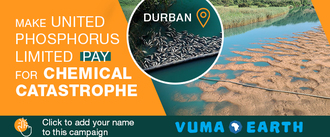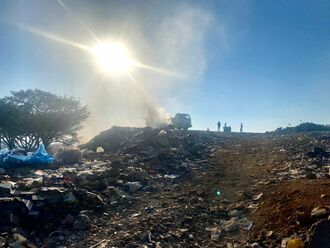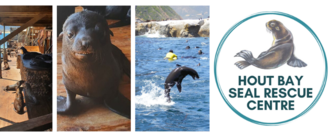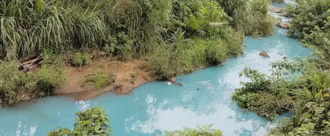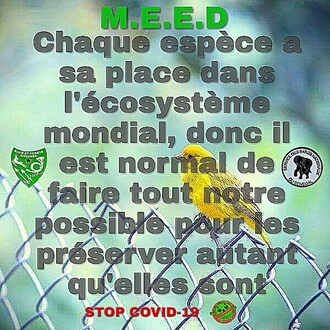-
La déforestation dans la province de Mai-Ndombe en RDCL'importance est justement de lutter contre la déforestation pour empêcher le réchauffement climatique et la destruction de notre environnement.10 of 100 SignaturesCreated by Olivier Mwenze

-
Don't drill the Okavango!I am writing this petition as a concerned resident who has lived in the delta all my life. I am a pastoral farmer, and I have fiercely guarded our environment for all the years I have lived here. There are no physical drilling activities in Botswana, but I believe that Recon Africa will expand its active exploration into our country following their initial drilling in Namibia. I am convinced that once the oil is discovered, the company will proceed with their production phase, which is a primary environmental concern, as it would generate a significant amount of greenhouse gas, contributing to the overall problem of global heating. As Batswana, we should learn from what happened in the Niger delta. The marshland has been destroyed, no fish are left, and much biodiversity has been lost due to oil spills. It will take many years to recover – if ever! There is nothing left for the people of the Niger delta. Botswana must never find itself in such a regrettable situation. The residents of Ngamiland have a long history of environmentalism. Our forefathers were one of the first in Africa to take a consensus decision in 1963 to form a conservation society to protect the Moremi Game Reserve. Now, as a young conservationist, I appeal to others to join me in protecting our fragile ecosystem by rejecting the decision to allow these activities that threaten our wetlands and, consequently, the future livelihoods of those who live there.53 of 100 SignaturesCreated by Israel Kazapua

-
NON A LA LIBERALISATION DU COMMERCE DES ESPECES PROTEGEES EN REPUBLIQUE DEMOCRATIQUE DU CONGOPourquoi faut-il agir maintenant ? Au cœur de l’Afrique, la République Démocratique du Congo (RDC), avec ses 135 207 000 hectares de forêts, est considérée comme l’un des pays d’Afrique les plus importants du fait de son extraordinaire richesse génétique spécifique, couvrant 60% des forêts du bassin du Congo. Elle abrite en effet une large gamme de biomes, d’écosystèmes et d’habitats qui lui confèrent la première place parmi les pays africains en termes de diversité des espèces. On y trouve plus de 10 000 espèces de plantes, une faune aussi abondante que variée, avec environ 480 espèces de mammifères, 1080 espèces d’oiseaux, etc. Les forêts et la biodiversité congolaise sont sérieusement menacées par la chasse et la pêche non contrôlées, le commerce de la viande de brousse, la destruction et la fragmentation de l’habitat faunique, surtout le braconnage des espèces clés pour satisfaire l’insatiable appétit de l’Occident. Le degré et l’étendue de la violence perpétrée par les braconniers et les trafiquants sur les espèces sauvages menacent la paix, la sécurité, l’état de droit et les conditions de vie des populations. Alors que des efforts énormes sont consentis pour la restauration de la biodiversité et la crédibilité de la RDC en ce que ce pays apporte des solutions au changement climatique et à la problématique de la survie de l’humanité, un Arrêté interministériel vient de tout annihiler. En effet, l’Arrêté n°006/CAB/MIN/EDD/2020 et CAB/MIN/FINANCES/2020/069 portant fixation des taux des droits, taxes et redevances en matière d’installation classée à percevoir à l’initiative du Ministère de l’Environnement et Développement Durable, en matière de gestion forestière du 24 juillet 2020 publié au journal officiel, libéralise le commerce illicite et illégal des espèces protégées. Selon cet Arrêté, personne ne peut plus être inquiété ni poursuivi en justice pour avoir tué un Okapi ou toute espèce protégée. En clair, les pointes d’ivoire sont admises à être vendues à la cité. Il n’y a plus de trafic illicite. Et pourtant, la loi n°14/003 du 11 février 2014 relative à la conservation de la nature stipule à son article 14, qu’il est interdit de : « prélever, pêcher, capturer, harceler ou tuer délibérément des spécimens des espèces protégées. Aussi « perturber intentionnellement ces espèces, notamment durant la période de reproduction, de dépendance, d’hibernation ou de migration » ; de détruire, endommager, enlever, ramasser les œufs des espèces ou en modifier la position ; détériorer ou détruire les sites de reproduction, les aires de repos ou tout habitat naturel où vivent ces espèces à l’un des stades de leur cycle biologique. De détenir, transporter, échanger, vendre ou acheter, offrir ou céder à titre gratuit les spécimens ou toute partie de ces espèces prélevés dans la nature ; détenir, céder, vendre, acheter ou transporter tout produit dont l’emballage ou la publicité annonce contenir des spécimens appartenant à l’une des espèces protégées et, enfin, exposer dans les lieux publics ces spécimens.1,514 of 2,000 SignaturesCreated by Michée N'KWADY

-
Collectif Taxawou Cayar: Non à l'implantation de l'usine de farine de poissonL'usine de farine de poisson contribue à appauvrir la population an ressource en poisson L'usine de farine de poisson contribue à polluer les zones environnantes L'usine de farine de poisson est à la cause de certaines maladies de la population dues à la pollution atmosphérique (vomissement, diarrhée, maladies respiratoires, fièvre, toux, hypertension)95 of 100 SignaturesCreated by Mor Mbengue
-
Thousands dead, genetics forever altered.. This is the United Phosphorus Limited Legacy..During recent KZN unrest, arsonists targeted United Phosphorus Limited SA (amongst many others). United Phosphorus Limited, with its headquarters in India, was operating illegally in Durban with no specific Environmental or Hazardous substance approvals or permits, so no EIA was conducted on chemical storage or potential POLLUTION, no bundling or pollution control dams. No government officials are aware of any applications. 1600 different types of chemicals were housed on the premises (a full disclosure of chemicals have not been given to relevant authorities) This incident took place on 13 July 2021. Reports of strong chemical fumes were being reported by different communities in the area. Homeowners reported struggling for air, their lungs and nostrils felt like they were breathing fire - personally I felt like my chest was going to explode. Measures to block out the toxic fumes did not suffice and we eventually needed to double mask indoors to escape the toxic fumes. I live 17.5km from the UPL chemical warehouse. God help those living closer and those living in informal settlements. Each time the wind changed direction, we'd gasp for relief. This lasted the entire 10 days that it took to extinguish the fire. On 14 July, the day following the explosion, a regular beach goer took his morning stroll on Umdloti Beach and was horrified to see hundreds of dead fish and crayfish washed up on the shoreline. A once pristine beach now littered with dead sea life. Local surfers came back to shore as the stench of the sea water was too much to tolerate. 16 July all beaches were closed north of the Umgeni River as thousands of marine fish had washed ashore. The Ohlanga River and Umhlanga estuary a hideous hue of blue. 19 July. Spilltech scooping up thousands of dead fish from the Umhlanga estuary. The fire at the illegal UPL chemical warehouse was finally extinguished on 22 July, 10 days later. Huge sigh of relief for some, such a pity our aquatic, amphibian, reptile, marine life and bird life can't say the same, the outlook for them short term is complete destruction of their environment with many dead zones in the river, the estuary and sea. Birdlife suffocated and died an agonizing death, wildlife dependant on the ocean and river system for sustenance suffered a similar horrendous and painful death. The destruction of vegetation or farmland will potentially suffer damage. Local communities or fishermen and women who are dependant on the river and ocean to sustain themselves and their families have lost their food source, how many have consumed fish or crayfish from the ocean or river, Ethekwini failed to erect warnings on beaches and river banks. It is estimated that it could take 2 years for this environmental disaster to recover.... if ever, because how will this disaster alter genetics??.. https://theworldnews.net/za-news/our-burning-planet-analysis-lessons-to-be-learnt-from-durban-s-upl-pesticide-fire https://mg.co.za/environment/2021-07-27-united-phosphorus-ltd-cleans-up-spill-after-chemical-blaze-in-durban/ https://www.news24.com/witness/news/durban-beaches-remain-closed-as-a-precautionary-measure-202108051,175 of 2,000 SignaturesCreated by Desiree Laverne
-
Kya Sands Burning WastelandWe have the constitutional right to clean air and water in South Africa. Municipal bylaws and Environmental Acts must be enforced. Criminals get away with poisoning the air and poluting our scarce water resources and it is time that the authorities and communities stand up and say enough is enough. If we dont do something now our future generations will have no-one but this generation to blame and we do not stand for that. Stand with us.828 of 1,000 SignaturesCreated by Steven Swanepoel
-
Beachside factories in GambiaI am addressing you because of the fishmeal processing factories on Gambias coastline. Are you aware of this already? I think the world definitely should act against this exploitation of one of the last natural, not over-fished and paradise-like tourism coastlines. They are Chinese plants and they are based directly on the beachside to be able to pollute their waste directly and unseen inside the sea. Every now and then tons of dead fish are lying on the beach. This together with the very disgusting scent produced by it scares off tourists - in places called (not by circumstance) paradise beach. In a country where almost 90% lives from tourism. Moreover activists found out they use blind trollers. Therefore they are likely to catch more fish than they are allowed to. The standards on the ships are not made for humans. They don't employ any locals which already resulted in serious riots taking place. The government is protecting the Chinese companies. Eventhough nature reserves like the Tanji Bird Reserve are next to it. Everywhere else in the world all this couldn't happen like this. It is probably only possible due to corruption and is making one of the poorest countries even poorer in the long run. I really want to protect Gambia and its people from this exploitation and make the world know about it.22 of 100 SignaturesCreated by Elena Speckels
-
SAVE OUR HOUT BAY SEAL RESCUE CENTREWe are the only seal rescue and rehabilitation centre in the Western Cape. The work we do saves the lives of the Cape Fur Seal. The centre has been going for 20 years and we are desperate to keep it going so that we can continue caring for the sick and injured seals.1,018 of 2,000 SignaturesCreated by Kelly Wells
-
Okavango Delta: Keep the oil industry out of Africa’s natural treasure!The Okavango Basin is an endorheic basin that covers an area of over 2.5 million km2 across Namibia, Angola and Botswana. The basin, which includes the Okavango Delta, is one of Africa’s most biodiverse habitats, home to a myriad of birds and megafauna species including the largest African elephant population left on the planet. The delta, a Ramsar and UNESCO World Heritage Site, remains one of the largest intact wetlands. Nearly one million people are dependent on the Okavango basin for their livelihoods. ReconAfrica’s license is completely within the Kavango Zambezi Transfrontier area and overlaps with six locally managed wildlife reserves and a UNESCO World Heritage Site. African elephants, African wild dogs, lions, leopards, giraffes, birds and rare flora will be deleteriously affected by the project. Environmentalists point to the Niger Delta in Nigeria, where oil exploitation by Shell and other corporations has caused an ecological and social nightmare. This must not be repeated in Namibia and Botswana. Namibian and Botswana environmentalists anticipate the following impacts: 🐝 The region’s ecosystem will be destroyed by a Canadian company that will rake in 90% of the profits. 🐝 ReconAfrica’s project will lead us to burn through what little remains of the planet’s dwindling global carbon budget and hampers global efforts to move beyond fossil fuels. The company must not be allowed to destroy such a globally vital conservation area under the guise of economic development. 🐝 Oil and gas extraction is a menace to wildlife. Loud noises, human movement and vehicle traffic from drilling operations can disrupt avian species’ communication, breeding and nesting. 🐝 The infrastructure built for energy development can also have a negative impact: power lines, well pads, fences and roads fragment the habitats of many species. 🐝 The construction of roads, facilities and drilling sites known as well pads requires the use of heavy equipment and can destroy big chunks of pristine wilderness. 🐝 Such damage is often irreversible. 🐝 Transporting the oil rig will destroy local roads. How heavy oil and gas industry equipment has impacted road infrastructure and led to deadly accidents has been amply documented in other countries. 🐝 The region’s tourism industry will be shaken and thousands of people might not only lose their jobs, but their investments as well. Who would want to go on safari in a landscape littered with oil wells? 🐝 The project would deplete and pollute the region’s aquifer. How can one justify giving an overseas company unbridled access to the region’s most precious resource? 🐝 The project will worsen food insecurity in the region, as water is the life source of communities in the Okavango ecosystem.5,063 of 6,000 SignaturesCreated by Fridays For Future Windhoek

-
Désastre écologique dans le village Ngoura situé dans le département de la Kadey à l'Est du Camerounnous les ami(e)s de la conservation de la nature , réunis au sein du groupe WhatsApp Moocs Gestion des aires protégées, venons auprès de vous, solliciter votre pétition pour le retrait du permis d'exploitation minière à la Société Chinoise qui exploite de l'or dans le village Ngoura du département de la Kadey, et qui est responsable du stress hydrique dans une zone déjà semi désertique, et de la mort de plusieurs espèces protégées qui font l'unicité faunique de notre pays. Dans l'attente d'une suite extrêmement favorable, nous vous prions de bien vouloir réagir de manière urgente pour éviter la catastrophe écologique qui s'annonce , et donc les populations locales ont droits à l'eau une ressource en eau de bonne qualité.32 of 100 SignaturesCreated by Jean Paul Lucky
-
STOP the ECOCIDE of the uMbilo RiverThe uMbilo River is a river system in KwaZulu-Natal, South Africa, located in eThekwini Metropolitan Municipality. The river rises in Kloof to the west of the city of Durban and the mouth of the river is situated in Durban harbour(1) (2). Due to the ongoing uMbilo River pollution and frustration of the lack of appropriate response or results by the Municipality in addressing the river pollution issues the community members and residents galvanised to form the "Umbilo River Watch" group to monitor and report the river pollution incidents - sewerage leaks/spills in the Pinetown/Queensburgh area and chemicals being released into the river from around Westmead region(3)(4). The numerous reports that were compiled and submitted by the community and ward councillors to the relevant authorities, did not get adequate feedback nor the appropriate progress report on addressing the river pollution issues. The community members took it on themselves to take numerous samples from the river that was sent to the lab for water quality testing. Since then the Durban Mayor Mxolisi Kaunda, visited the uMbilo wastewater treatment plant and ordered city officials to fast track maintenance work in the plant (5) - effluent of which discharges into the river system (6). The uMbilo river system course and river tributaries flows through several communities and informal settlements of which the pollution of the river system has serious environmental and human health issues for community members. The river canals into the Durban port at Bayhead through Maydon Wharf, the site is listed as a Natural Heritage site a 20ha nature reserve of mangrove forest and coastal grassland within the industrial area of Durban Bay, South Africa. The reserve is a remnant of what was once the largest mangrove swamp in the province (7). Reports of the canal pollution have been reported (8). Yours sincerely, The Durban Greenpeace Volunteers, the Umbilo River Watch community group, and the concerned citizens who have added their signatures. Ref:(1) https://en.wikipedia.org/wiki/Umbilo_River (2) http://za.geoview.info/umbilo_river (3) https://www.iol.co.za/mercury/news/look-residents-concerned-at-umbilos-rainbow-river (4) https://www.iol.co.za/sunday-tribune/pinetown-residents-frustrated-as-polluted-umbilo-river-turns-unnatural-blue-colour (5) https://www.iol.co.za/dailynews/news/kwazulu-natal/durban-mayor-steps-in-after-residents-raise-a-stink-about-umbilo-waste-water-works-pollution (6) http://www.durban.gov.za/Resource_Centre/Press_Releases/Pages/Public-Notice_Residents-Urged-not-to-Use-Water-From-Umbilo-River.aspx (7) https://en.wikipedia.org/wiki/Bayhead_Natural_Heritage_Site (8) https://southlandssun.co.za/154085/bra-demands-answers-over-polluted-canal/ Footnotes *The Umbilo River Watch was set up under the Pinetown Conservancy (formerly uThekwane Conservancy) and has an active Whatsapp group whose members report on pollution in the river. *Ecocide is the extensive damage to, destruction of or loss of ecosystem(s) of a given territory, whether by human agency or by other causes, to such an extent that peaceful enjoyment by the inhabitants of that territory has been or will be severely diminished. *The River Eco-status Monitoring Programme (REMP) evolved from the River Health Programme (RHP). The REMP replaced the RHP in 2016 and is a component of the National Aquatic Ecosystem Health Monitoring Programme (NAEHMP). http://www.dwa.gov.za/iwqs/rhp/default.aspx9,417 of 10,000 SignaturesCreated by Delwyn Pillay

-
Protégeons la biodiversité !!!D’après la page Facebook « Alertes environnementales au Sénégal », l’absence de l’homme sur certaines plages avec la pandémie du Covid-19 a entrainé le retour des tortures Caouannes au niveau des côtes sénégalaises au bonheur des braconniers et au malheur de la biodiversité car l’espèce joue un rôle important dans l’équilibre des écosystèmes marins. Notre caractère anthropocentrique nous pousse à négliger certaines espèces tout en oubliant que tout est lié dans la nature, aucune espèce ne peut être considérée comme non indispensable. Conscient de l’importance de la tortue Caouanne et de sa faible reproduction dans le temps et dans l’espace, il serait urgent de mettre en place une stratégie pour accueillir et protéger dans nos côtes la tortue Caouanne (ressource biologique partagée) à notre qualité de « Téranga sénégalais » (hospitalité). Sauvons la Tortue Caouanne, pour participer à la conservation des espèces animales indispensables à l’équilibre des écosystèmes marins en cette journée internationale de l’environnement dont le thème est « La biodiversité une source de préoccupation à la fois urgente et existentielle ».Les événements récents comme les feux de brousse au Brésil, aux Etats -Unis et en Australie ou les infections de criquets en Afrique de l’Est, et maintenant, une pandémie mondiale, démontrent l’interdépendance des êtres humains et des réseaux de vie dans lesquels ils vivent. La nature nous envoie un message (http://www.worldenvironnementday.gobal/). According to the Facebook page “Alertes Environnementales au Senegal”, the absence of man on certain beaches brought about by the Covid-19 has led to the return of Loggerhead Turtles to the coast of Senegal to the happiness of poachers and the misfortune of biodiversity because the species plays a key role in balancing marine ecosystems. Our anthropocentric nature urges us to overlook some species while forgetting that everything is connected when it comes to deal with nature, no species indeed can be considered apart. Aware of the importance of the Loggerhead Turtle and of its low reproduction in time and space, it would be urgent to implement a strategy to welcome and protect in our coasts the Loggerhead Turtle (shared biological resource) on behalf of our quality "Senegalese Teranga" (hospitality). Save the Loggerhead Turtle, to be instrumental in the conservation of animal species overriding to the balance of marine ecosystems on this International Environment Day, the theme of which is "Biodiversity, a source of both urgent and existential concern". Recent events like bush fires in Brazil, the United States and Australia or locust invasions in East Africa, and the current global pandemic, epitomize the interdependence of human beings and life networks in which they live. Nature sends us a message (http://www.worldenvironnementday.gobal/). Tel: +221 77 497 73 21 Website: http://www.leadsenegal.org/ Email: [email protected] Facebook:@senegalead Twitter: @SenegalLead23 of 100 SignaturesCreated by Ababacar diop






